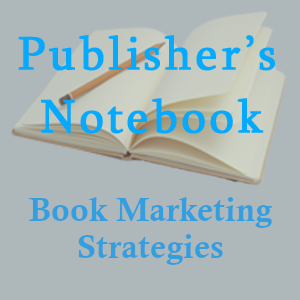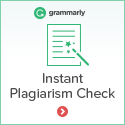Book Marketing Strategies to Get More Book Sales
There are many book marketing strategies you can use to get visitors or potential readers to your author and book websites, some that cost money and some that don't. If you are just starting out and don't have a lot of money to help with book promotion, start with the free methods and work into the paid methods.
The more targeted your book is about a specific topic, the easier it is to hone in on where the people are that you want to drive to your book's website. The primary mission with marketing is to help people find your book. You can directly advertise your book's sales link on Amazon or wherever else you published it, but you won't make as many sales and you won't know who is buying your books.
The key to marketing success is to capture potential buyers or buyer's information (email address and name) so you can continue to advertise to them with new books, control the sales process from start to finish, and use data from your advertising campaigns to make your promotions better.
Below are some great book marketing strategies that will help feed your marketing system so you can get people into your marketing process where the process will take over and make some sales.
Free and Low Cost Book Marketing Strategies
Most people are under the impression that book marketing costs a lot of money. It can if you don't do it right. But for the most part, it doesn't have to cost much at all. In fact, there are several things you can do for free that can drive just as many visitors to your book website and are just as effective as paid for marketing.
Below are some of the free and low cost book marketing strategies you can use to get traffic to your book website. Once you make some money selling books, you can step it up focusing on more paid advertising methods.
Author and Book Websites
The first of the book marketing strategies is something your should do first before you even finish writing your books. In order to have a place to send people, you need to have a website or two to act as the front door to your sales process. Though a website may cost a little bit for hosting and annual domain registration, overall it is fairly inexpensive and will count as free advertising once your sites are built. Hosting and domain fees are a different expense.
Your author or writer website is a good catch all for visitors if you have books in various topics, but your book website is going to be your primary promotional website for your books.
You author website will have links directly to your sales pages for your books from a portfolio page while the book website will have sales pages, teasers, and other information to help make the sale.
When promoting through other sources, you should be sending people to your book website to a landing page where you can capture potential customers names and email addresses. Most people building an email list will have a free report or a teasers that your visitors can download if they subscribe to your list. After they subscribe, they are brought to your sales page so they can buy the book and they will get their free teaser they can read first to see if they will like it (it can be a chapter of your book or a synopsis of your book). Your goal is to capture their information.
Another great thing about your website is that it will naturally attract visitors interested in your book's topic from all over the world. These will be residual visitors, but they usually find your website because they are searching for words and phrases that relate to your book.
Next in line for book marketing strategies is how to get more people to your book website.
Marketing Your Book on Facebook
Facebook is a great marketing platform because of the way they pull interests and demographics from their members. There are hundreds of groups based on similar topics of interest for your related book topics. You can join these groups, interact with the members, then gradually send a link out to your book's website. Don't try to directly sell your book in these groups (unless it's a book sales and promotion group). Just get them to visit your website. Let the website do the work once they are there.
You can also make daily posts on your personal social account to your friends or if you have a Facebook Page, send out links to your site on there.
Going along with Facebook advertising, sometimes book trailer marketing and video introductions for your book work well on social media.
Once you make some sales, it's time to use Facebook Ads where you can spend some money to get super targeted views of your advertisements and direct clicks to your website's landing page.
You should track some statistics of web traffic to your website and how your ads increase the flow and how many subscribers and sales you get with each advertisement. Try changing them up a bit here and there and see which ads work better. Concentrate on the ones that work better, obviously.
Don't underestimate the power of Facebook. This is by far one of the best sources of visitors you will find. Learn more about marketing your book on Facebook to get tons of visitors to your book website.
Book Marketing Tweets on Twitter
Twitter is probably the most simple form of social marketing you will find. It's very basic, but also very powerful. You must keep your promotions short and sweet, maybe add a picture, but add a link so they can read more on your website.
Another great feature on twitter is the hash tag or "#" including a keyword or topic. When people search twitter for that particular topic, they will see your post.
Twitter also has paid advertising available for more powerful book marketing tweets.
Book Marketing Blog
Along with your website, you should have an active blog. It can be on your author website, book website, or on an independent blog or forum site where you can make regular posts regarding your book, may it be progress, announcements of release, or activities you are doing as an author.
A book promotion blog should be centered on the book's topic or your activities as an author in the same topic as your book. Make sure you link to your book website often to get people into your marketing process.
Articles About Your Book's Topic
If you write a book about a topic, pumping out an article or two about the same topic should be super easy. Just write up a 500 word article about a topic or subtopic the same as your book. You get to put a small autobiography or an about the author section with your article. Simply add a link to your book's website either in the bio or in the article write up and visitors can follow it to your book's website.
Learn more about book promotion articles and how they can drive traffic to your books.
Using Outside Services to Market Your Books
There are many freelancers out there that will assist with getting information about your books out there. Many can be found on Guru.com, Fiverr.com, and many more. With these freelancers, they can put together advertisements for you or you can submit your advertisements to them and they will send them to all of their networks.
Just remember, you get what you pay for. Sometimes cheap isn't always the best investment. Do your research and make sure it is a good investment. Make sure they are marketing your books in targeted areas beneficial to you and monitor your traffic during their campaigns to see any improvements in your sales/subscribers.
Focused List Building
There are some companies out there designed to help build your email lists. Using these with your book marketing strategies can help drive traffic from sources you've never thought of.
One such source is Book Funnel. They allow you to post up a freebie teaser on their site, build a landing page, and submit your link to groups within the Book Funnel system that helps get people to your lists.
You may build a list quickly this way, but your subscribers may not be as hot as some of the more targeted social media visitors. I've heard mixed reviews, but most of them have been very positive in getting a lot of subscribers to their email list pretty fast with an increase in book sales.
Offline Ways to Market Your Books
A more old school method of book marketing strategies is a blanket method of advertising your books not as targeted as online methods but can drive some people towards your website. These methods can get more of a local following for you and establish a larger fan base.
Creating a book promotion flyer is one method that you can use. Getting permission of course, see if you can post the flyer in a local book store or library. Let them know you are the author. Who knows, they may even ask if they can put up a little display with some of your books to see how they will sell in the store.
Another good offline marketing source is a book promotion poster. Much bigger than a flyer, it can be used in the same way as a flyer, but may be more limited in where you can post it.
You can also use flyers and posters to advertise an upcoming book signing you intend on having somewhere.
These were just a few of the more common book marketing strategies you can use to drive targeted visitors to your book's website. There are other ways of advertising that can help, but the above book marketing strategies are the more common and easiest to integrate into your marketing plan.
If you have any questions about any of these book marketing strategies, please contact me and let me know.






